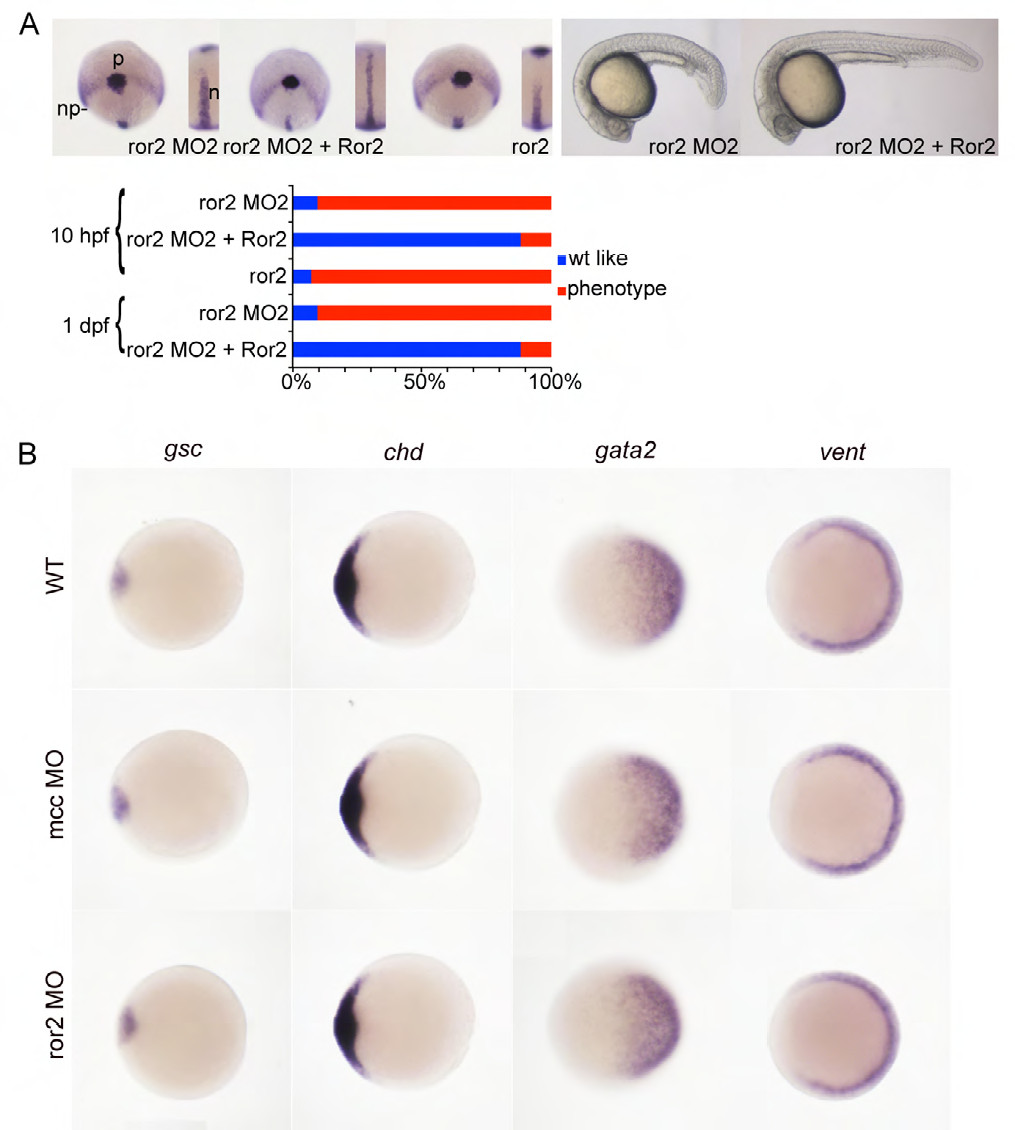Fig. S3
Characterization of a second ror2 splice junction morpholino. (A) ror2 MO2 phenotypes at 10 and 24 hours post fertilization (hpf) are superimposable with ror2 MO1-injected embryos (Fig. 3D). Whole-mount in situ hybridization (WISH) for hgg1, dlx3 and ntl transcripts identifies the polster (p), neural plate (np) boundary and notochord (n, inset), respectively, at 10 hpf. Co-injection of mouse Ror2 mRNA and ror2 MO2 rescues CE defects. Overexpression of zebrafish ror2, like mcc (Supp. Fig. 2C), also results in abnormal CE at 10 hpf. Morpholino and mRNA concentrations are provided in Supp. Table 3. Phenotypic distributions are indicated as percentages, with scored embryo counts listed in Supp. Table 4. (B) WISH for zebrafish dorsal (gsc and chd) and ventral (gata2 and vent) marker genes at shield stage. Both mcc and ror2 morphants display expression patterns identical to the wild type, indicating that dorsal-ventral patterning is normal in morphant embryos. Animal pole views with dorsal to the left.

